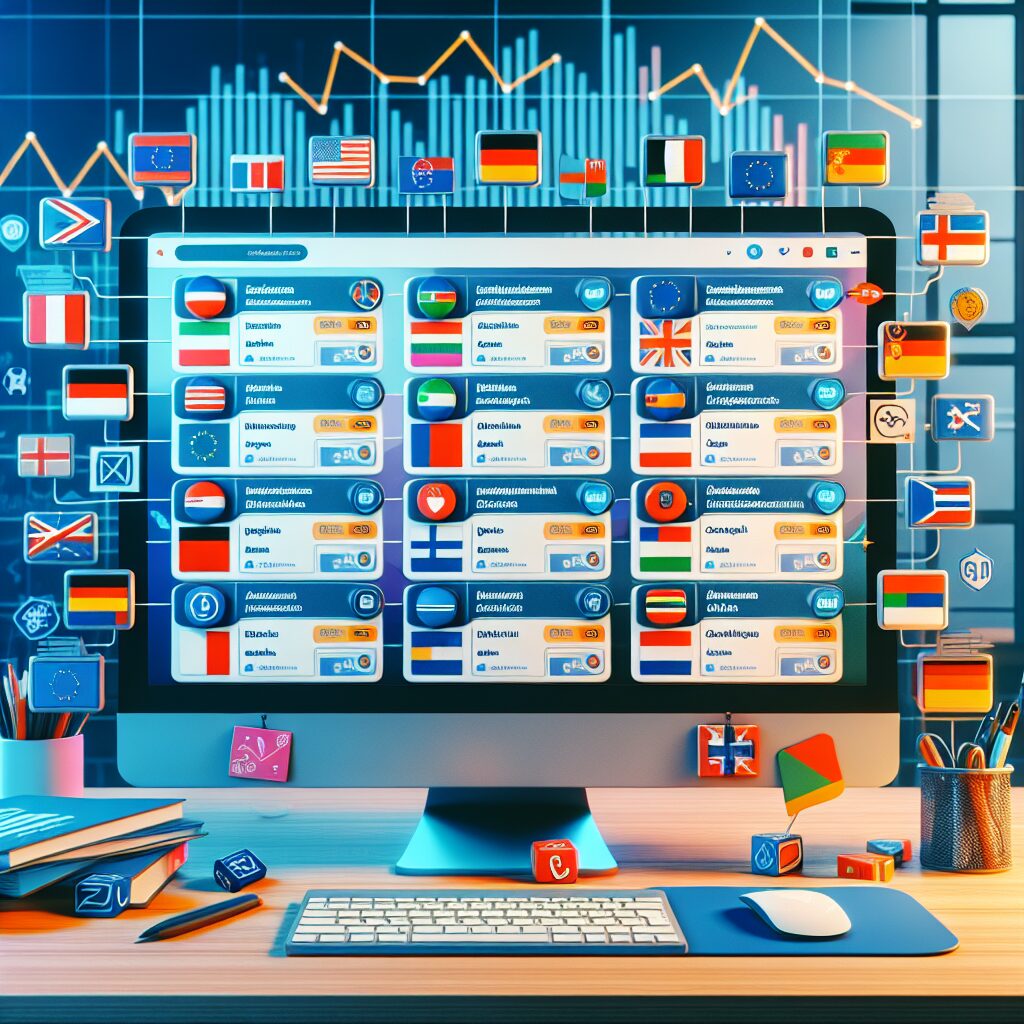About eldris
At Eldris, we automate SEO, multilingual site expansion, and EU compliance for brands scaling across Europe. Our AI-powered platform handles everything from content publishing to regulatory docs—so you don’t have to.
In This Article
- All-in-one SEO platforms integrate keyword research, content analysis, and automation in a single tool.
- AIOSEO and Rank Math remain top contenders for 2025, each with strengths for different DTC needs.
- Benefits include faster optimisation, improved scalability, and enhanced team productivity.
- Evaluate platforms not just on price but on their long-term ROI and flexibility across tech stacks.
- Choose platforms that support AI-driven workflows, multilingual content, and role-based access.
What Are All-in-One SEO Systems?
Unified SEO Workflow Explained
At its core, an all-in-one SEO platform provides a consolidated approach to managing every facet of search engine optimisation from one central dashboard. Unlike traditional standalone SEO tools, which often require switching between fragmented applications for keyword research, on-page optimisation, link tracking, and performance analytics, an all-in-one SEO system integrates all these features seamlessly.
This type of solution is particularly advantageous for DTC brands that need to operate quickly, optimise cross-channel efforts, and capture market share in saturated digital environments. By simplifying SEO into a unified workflow, teams can improve efficiency, reduce reliance on manual processes, and gain holistic insights across content, rankings, and conversions.

Top Platforms Reviewed for 2025
AIOSEO vs Rank Math vs Competition
Among the leading contenders in the all-in-one SEO market, AIOSEO and Rank Math continue to dominate the conversation. AIOSEO, originally engineered for WordPress, has evolved into a sophisticated automation suite offering schema markup, advanced XML sitemaps, and SEO scoring for every page or post. It particularly excels in providing granular control over meta tags and structured data.
Rank Math, on the other hand, offers an AI-powered content assistant, seamless WooCommerce integration, and detailed analytics reports within the WordPress interface. Many smaller DTC brands find its freemium model appealing, especially when testing SEO strategies at scale.
Other notable platforms include SEOPress, which offers white-label options ideal for agencies, and Surfer SEO, which focuses more narrowly on content optimisation using NLP data. When considering the full spectrum of functionality—especially where automation, scalability, and usability intersect—AIOSEO emerges as a benchmark for 2025.
Benefits for DTC Brands
Speed, Scale, and ROI Explained
For DTC brands, agility and cost-efficient scalability are critical. All-in-one SEO solutions enable rapid deployment of full-funnel keyword strategies without the need to toggle between multiple software tools. This translates to faster time-to-market, particularly for product launches or seasonal campaigns.
Moreover, these platforms typically incorporate advanced automation—think auto-meta generation, real-time content scoring, and smart link-building recommendations—reducing the manual workload often associated with SEO tasks.
ROI improves when SEO efforts are data-driven and tightly integrated. Businesses gain a clearer understanding of what content drives conversions and which pages contribute most to organic growth. Over time, all-in-one SEO systems pay for themselves by enhancing both visibility and revenue.
For expanding brands, scalability is key. These platforms often support role-based workflows, enabling marketing, development, and product teams to collaborate without compromise.
Comparing Pricing and Features
What You Get at Each Tier
Pricing among all-in-one SEO platforms varies based on features, user limits, and support offerings. AIOSEO, for instance, offers four main tiers ranging from Basic to Elite. The Basic plan provides essential features suitable for startups, including on-page SEO analysis and XML sitemap generation. The Pro and Elite tiers unlock premium integrations, customer support, and advanced schema functionality tailored for larger teams and complex site structures.
Rank Math operates on a more affordable pricing spectrum, particularly with its powerful free plan. However, its premium options introduce AI content assistants and advanced analytics tools—crucial for those looking to deeply fine-tune their SEO implementations.
It’s important to note that pricing should not be the sole deciding factor. Instead, assess the cost in context with the platform’s ROI potential, flexibility, and depth of automation. A slightly more expensive platform that automates significant manual input may ultimately cost less over time.
Platform Compatibility and Integrations
Shopify, WooCommerce, Custom CMS
Compatibility remains crucial when choosing an all-in-one SEO platform. For DTC brands leveraging Shopify, platforms like AIOSEO have invested in seamless plug-and-play modules, ensuring minimal customisation is required. Rank Math leads in WooCommerce integration, supporting dynamic product schema, attribute mapping, and cart-level tracking for SEO-informed decisions.
For brands working on custom CMS solutions, API accessibility and webhook support become essential. AIOSEO’s developer-friendly architecture allows custom hooks and extensions, making it ideal for businesses with bespoke site structures.
Platforms like SEOPress offer flexible REST API support, making it easier for brands to integrate with headless CMS environments. When selecting a solution, always ensure it complements your existing tech stack to avoid unnecessary bottlenecks and development overhead.
AI and Automation Capabilities
Using Predictive SEO & AI Workflows
Modern all-in-one SEO tools leverage artificial intelligence to identify growth opportunities that might otherwise go unnoticed. Predictive keyword targeting, for example, uses search trend data and competitor analysis to suggest new content areas before they peak in popularity.
Tools like AIOSEO and Surfer now include AI-driven content scoring systems that evaluate draft content against live SERP benchmarks. These systems offer suggestions on readability, semantic relevance, and keyword distribution to enhance quality before publication.
Automated SEO audits are another critical feature. These involve real-time crawling, issue tagging, and prioritisation lists, allowing teams to address technical SEO faults proactively. With AI streamlining these processes, brands reclaim the time spent on routine diagnostics and focus on long-term strategy.
Automation in link building, internal linking, and local keyword distribution further extends the value of these systems. Platforms automate anchor text variation suggestions and detect unlinked mentions to aid outreach strategies and strengthen domain authority.
Global SEO and Multilingual Support
Scaling DTC Across Regions
To penetrate international markets, DTC brands must prioritise localisation and multilingual SEO. All-in-one SEO platforms now make this far simpler through dynamic hreflang tag generation, multilanguage schema, and region-specific keyword tracking.
AIOSEO stands out with its dedicated multilingual module, compatible with WPML, Polylang, and other translation tools. It automates the creation of language-switched URLs and auto-detects user location to serve appropriate content versions.
Meanwhile, Rank Math allows translation of sitemaps and auto-indexing rules by country and language—especially vital for Google’s country-specific indexes. With international shopper expectations rising, brands that fail to optimise global SEO risk missing significant revenue channels.
Case Study Examples
How DTC Brands Improved SEO KPIs
Several DTC brands have dramatically improved their SEO performance through all-in-one platforms. A prime example is a UK-based skincare company that implemented AIOSEO across a WooCommerce infrastructure. Within three months, they saw a 45% increase in organic sessions and a 28% lift in conversion rates.
Another brand, specialising in modular home office furniture, used Rank Math’s AI content assistant to update over 200 product pages. Keyword rankings jumped from page three to page one within two quarters, and bounce rates fell dramatically due to improved content alignment.
Learn more about SEO Automation Solutions for Digital Commerce offers these and more examples of real-world applications of all-in-one SEO solutions in supporting direct-to-consumer success at scale.
Pitfalls to Avoid When Switching
Warnings for Platform Migration
While the upside of migrating to an all-in-one SEO platform is clear, the process is not without risk. Common missteps include failing to map existing metadata configurations, overlooking canonical tags, and neglecting redirect strategies when restructuring URLs.
Migration without a full SEO audit often results in performance dips or indexation issues. It is therefore critical to export legacy SEO data for archival and benchmarking purposes. Conduct crawl tests pre- and post-migration using tools like Screaming Frog or Ahrefs to anticipate and reduce disruption.
Also, avoid switching platforms mid-campaign unless absolutely necessary. If you must, align migration with low-traffic months. Training internal teams on the new interface ensures adoption and reduces friction. Be sure to consult the guides on Read a related article before making changes.
Expert Tips for Choosing a Platform
How to Match Tools to Your Stack
Choosing the right SEO platform means aligning features with your current and future marketing strategy. Businesses running Shopify should look for direct app integrations and robust support. Those with developer-heavy teams may prefer API-rich platforms that offer fine-tuned control.
Make scalability a key question. Does the platform support localisation? Can it tolerate traffic spikes? Will the reporting scale as data volumes grow? Beyond features, consider ecosystem support—active communities, documentation, and roadmap transparency are often overlooked but crucial factors.
Expert consultation is recommended, particularly for large-scale migrations. In-depth reviews like those from Comprehensive guide to leading all-in-one SEO systems can also provide valuable comparative insights into the capabilities of each system.
Final Thoughts and Takeaways
In 2025, all-in-one SEO platforms are no longer optional investments for DTC brands. They offer powerful ways to automate, streamline, and enhance digital marketing functions—from content creation to SERP monitoring—in one integrated system. When properly deployed, they generate significant cost savings, reduce time-to-publish, and increase visibility across key markets.
Your choice of platform should reflect your existing infrastructure, operational goals, and desired scale of internationalisation. Whether choosing AIOSEO for its automation depth or Rank Math for its real-time assistance features, the future of SEO clearly lies in convergence, AI, and scalability.
“Switching to an all-in-one SEO platform transformed every layer of our campaign operations and halved our optimisation lead time.”
Great guide on all-in-one-seo-automation-dtc-comparison – Community Feedback
What is an all-in-one SEO automation system?
An all-in-one SEO automation system is a platform that combines multiple SEO tools—such as keyword research, content optimisation, and reporting—into a single solution, helping brands streamline their search marketing efforts automatically.
Which is the best SEO automation tool for DTC ecommerce?
The best SEO automation tool for DTC ecommerce will depend on your brand’s size, needs, and technical stack. Leading platforms include AIOSEO, Rank Math, and bespoke AI-driven systems designed for scaling content and compliance internationally.
Are all-in-one SEO platforms worth the investment?
For fast-scaling DTC brands, all-in-one SEO platforms can save time, centralise processes, and improve performance compared to juggling multiple separate tools, providing measurable ROI when matched to your ecommerce needs.








